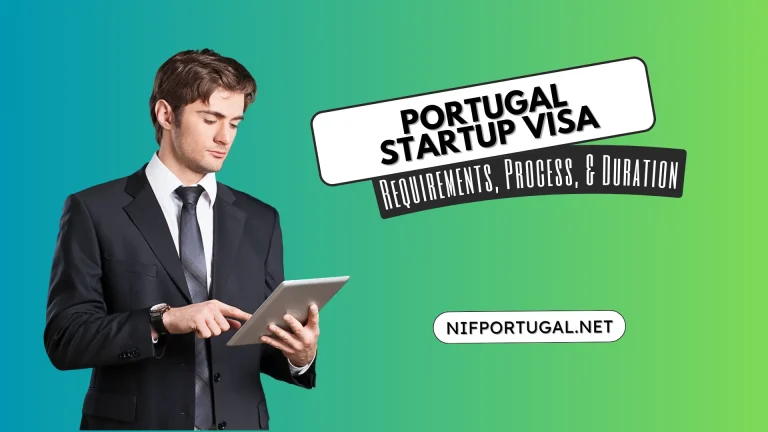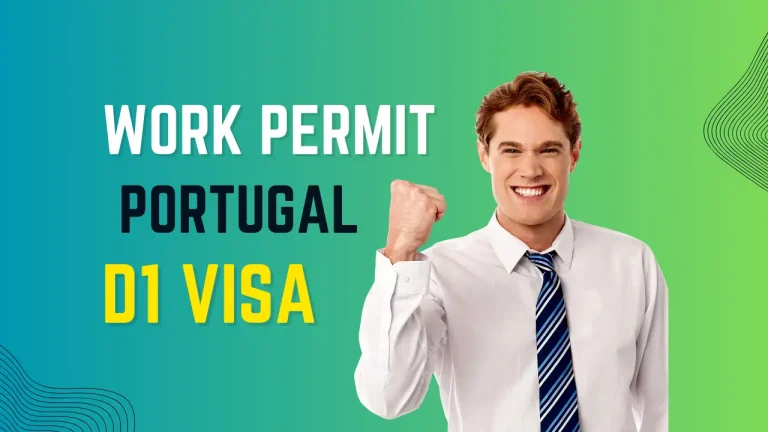How To Apply Portugal D7 Visa: Portugal Passive Income D7 Visa 2025
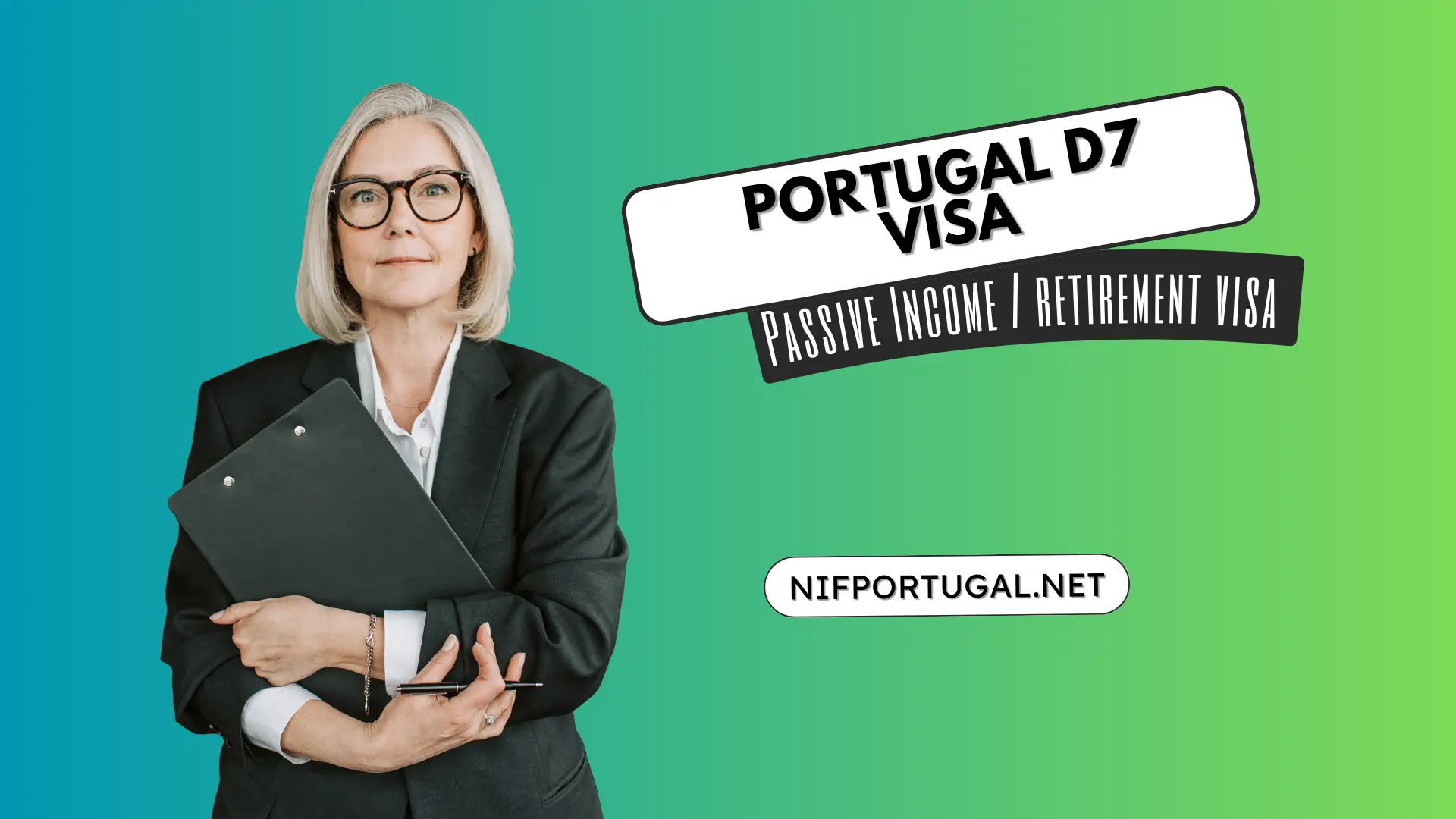
Welcome to the Portugal D7 visa, your pass to permanent residence in one of Europe’s most alluring locations. With this visa, you can live a lively and carefree life in Portugal. Known by many as the Retirement or Passive Income visa, the D7 gives non-EU/EEA people a special chance to enjoy Portugal’s natural beauty and vibrant culture without having to work a regular job.
Imagine a life where you can enjoy breathtaking scenery, mouthwatering cuisine, and kind Portuguese hospitality, all while receiving your income conveniently via pensions, investments, or rental properties.
The flexibility of the D7 visa makes it unique; rather than requiring you to work a 9 to 5 job, it allows you to embrace the income streams you have already developed. Retirement seekers, digital nomads, and people with various income streams can all find refuge with this visa.
Moreover, Portugal invites you to realize your aspirations, be they to launch a small company, pen that book, or take in the peace of the country’s countryside.
Let’s seize this opportunity to settle in Portugal, a country where your ambitions can thrive, and every day feels like a celebration. Moreover, Portugal offers a Job Seeker Visa, allowing you to explore employment opportunities and build a fulfilling life in one of the most peaceful and welcoming countries in the Schengen area.
What is a Portugal D7 Visa?
For investors, business owners, and retirees hoping to obtain Portuguese citizenship, Portugal’s D7 visa is a great residency option. Those who can sustain themselves without employment in Portugal and are financially independent are the target audience for this visa.
To remain in Portugal for four months, a D7 visa is valid, and the person who carries the visa must apply for a resident permit. Upon renewal, a D7 visa holder is often awarded a two-year temporary residence permit.
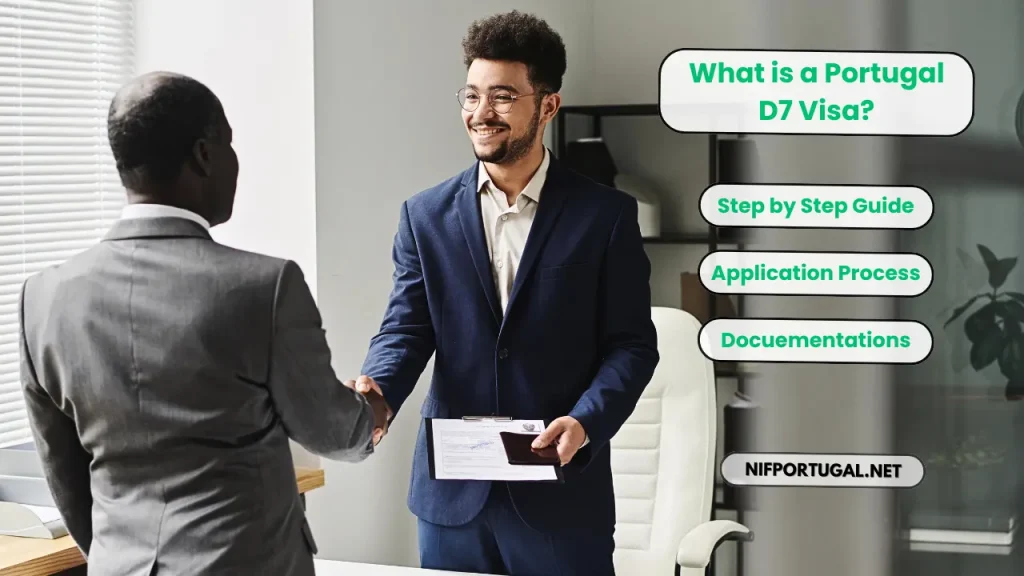
The permission is renewable for three years after the first two years. Once five years have passed, you can seek citizenship or a permanent residency permit. Applying for a D7 visa at the Portuguese embassy requires submitting multiple applications for residency.
Under the family reunification requirements, your immediate family members also get the right to a permit to live there once you get your visa. Due to its registration with the Schengen Information system, this visa further grants you the ability to enter the Schengen zone without a visa.
Benefits of Portugal D7 visa
1. Permanent Residency
One route to becoming a permanent resident of Portugal is through the D7 visa. This implies that you might make this fascinating country your permanent home and take advantage of the security and sense of community it offers.
2. No Conventional Work Requirement
The D7 visa releases you from the requirement for conventional work, a restriction many other visas impose. It is designed to recognize and accommodate a variety of financial scenarios and is geared toward people with passive income sources like ventures, income from rentals, or pensions.
3. Quality of Life
Portugal’s quality of life is routinely ranked highly in international rankings. It allows you to adopt a way of life that promotes happiness and fulfillment by encouraging a more relaxed pace, fine dining, and a welcoming, inclusive society.
4. Sense of Security
Portugal is known for being among the safest nations in the world regarding security and safety. With the D7 visa, you can live in a safe and secure environment that will increase your sense of security and peace of mind.
5. Education Opportunities
The D7 visa provides access to Portugal’s educational system if you are a parent. Primarily reputable for its excellence and diversity, a well-rounded education can benefit your kids.
6. Best Way to Entrance in Europe:
Portugal’s participation in the European Union is a gateway to travel to other European nations. You have the opportunity to explore a variety of cultures and landscapes by traveling within the European Union (EU).
What Are the Eligibility Criteria for a Portugal Residency Visa?
To talk about the eligibility, you can easily see it yourself because here is all you need to be eligible for a Portugal residency visa – also known as a Portuguese D7 visa.
- Age Requirement: A minimum of 18 years old is required.
- Non-EU/EEA/Swiss Citizenship: Individuals who do not hold a passport from the EU, EEA, or Switzerland are eligible to apply for a D7 visa.
- Proof of Accommodation: You must present documentation attesting to your intended residence in Portugal, such as a rental or purchase agreement.
- Portuguese Bank Account: A minimum savings amount of €9,120 must be maintained in a Portuguese bank account.
- Clear Criminal Record: You must be free of any criminal convictions.
- Health Insurance: To pay for your medical requirements while visiting Portugal, you must have health insurance.
- Minimum Passive Income: You have to make a particular amount of money. This means you should have a steady income stream from sources other than a normal job, such as investments, pensions, or other passive income.
What are the documents required for D7 Visa in Portugal?
Portugal D7 Visa Cost in 2025
Applying for Portugal’s D7 Visa in 2025 involves several costs:
Entry Visa Application Fee: Approximately €90, payable at the Portuguese consulate in your home country.
Residence Permit Fee: Around €170, due upon issuance of the residence permit by Portugal’s immigration authority (AIMA).
Additional expenses may include travel insurance, translation and notarization of documents, and travel costs. It’s advisable to consult with the relevant consulate or a legal advisor for the most current information, as fees can vary.
How to Get Your Portugal D7 Visa?
Step 1: Determine Eligibility and Gather Information
- Verify Your Eligibility: Make sure you fulfill all conditions for eligibility, including generating a Portuguese NIF number and bank account (which you may do from outside of Portugal) and achieving the minimum passive income requirements.
- Prepare Supporting Documents: Compile all required paperwork, such as a clean criminal record, health insurance, a passport with photographs, a letter of purpose, proof of housing, and evidence of means of subsistence.
Step 2: Fill Out the Application.
- Complete the Application Form: Fill out the D7 visa application form, including precise and comprehensive details about your travel history and goals in Portugal.
Step 3: Send in Your Application
- Visit Consultant or Embassy: To submit your application, visit the Portuguese consulate or embassy in your community. If you make the required payments, be prepared for the consular to hold onto your passport while it is being processed.
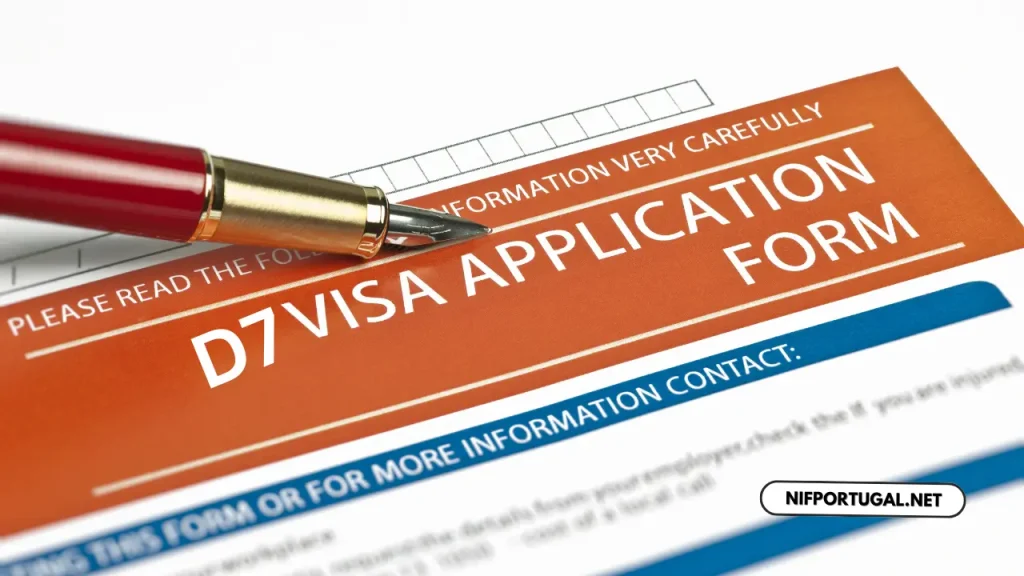
Work Permit Portugal (D1 Visa) in 2025
Step 4: Get Your Visa for D7
- Notification of Decision: Following processing, you will get an email or letter informing you of the outcome. Your D7 visa will be stamped in your passport if it is granted.
- Check the Visa Details: Make sure the information on the visa and your passport match. Make any necessary corrections to prevent problems when you enter Portugal.
Step 5: Go to Portugal and Make an Appointment with AIMA
- Travel Within 120 Days: Go to Portugal within 120 days of receiving your visa
- Make an Appointment with AIMA: The Agência para a Integração Migrações e Asilo may be contacted on your behalf by your local consulate. If not, schedule an appointment at the AIMA call center numbers (+351) 217 115 000) or send email at [email protected].
D7 Visa Portugal Rejection Rate in 2025
The D7 Visa, often referred to as Portugal’s Passive Income Visa, has become an increasingly popular pathway for non-EU citizens, including retirees and remote workers, seeking residency in Portugal. While specific rejection rates for 2025 are not publicly available, the D7 Visa is generally considered to have a low rejection rate. This favorable outcome is largely due to applicants meticulously meeting the visa’s stringent requirements and often seeking professional assistance to ensure their documentation is accurate and complete.

Moreover, recent Schengen data reveals that Portugal ranks as the 8th highest among Schengen countries for visa rejections, with a rejection rate of 18.4%. In 2023 alone, embassies worldwide processed a total of 7,572,755 visa applications, reflecting the growing demand and strict scrutiny associated with Schengen visas.
Common reasons for rejection include insufficient proof of passive income, incomplete or inconsistent documentation, and failure to demonstrate adequate accommodation in Portugal. To enhance the likelihood of approval, applicants should ensure they meet the minimum passive income threshold set at €820 per month for a single applicant as of 2025 and provide comprehensive documentation, including proof of accommodation and a clean criminal record.
Additionally, engaging with experienced immigration consultants or legal advisors can further improve the chances of a successful application by navigating the complexities of the process and ensuring all criteria are satisfactorily met.
A D7 Visa Alternative: Portugal’s Digital Nomad Visa
Portugal’s Digital Nomad Visa is a versatile alternative to the D7 Visa, designed specifically for remote workers and freelancers seeking residency in Portugal. Launched to attract global talent, this visa provides an opportunity to live and work in one of Europe’s most desirable locations while enjoying the country’s vibrant culture, excellent quality of life, and favorable tax incentives.
Unlike the D7 Visa, which focuses on passive income, the Digital Nomad Visa allows applicants to showcase active income generated from remote work outside Portugal, making it an attractive option for modern professionals.
To qualify for the Digital Nomad Visa, applicants must demonstrate a monthly income of at least four times Portugal’s minimum wage, approximately €3,040 as of 2025. This visa offers a streamlined application process, often requiring fewer financial documents than the D7 Visa, along with proof of remote employment or freelance work. The Digital Nomad Visa also permits flexible residency options, including short-term stays or renewable long-term residency. By offering a practical solution tailored to the needs of remote workers, Portugal continues to establish itself as a global hub for digital nomads.
How do you achieve a 100% success rate in NIF Online Portugal?
NIF Portugal specializes in helping people apply for NIF Portugal easily and quickly, particularly for the Portugal NIF Online. By utilizing our knowledge and skills, we guarantee a seamless and effective experience for clients wishing to transfer or remain in Portugal under the D7 visa category.
Meanwhile, we also assist candidates in gathering and organizing the appropriate papers by offering thorough information on the required paperwork. NIF Portugal provides individualized support throughout the application process, answering each applicant’s questions and concerns. Our staff knows the particular requirements for the Número de Contribute Online Portugal. Therefore, there is less chance of mistakes or omissions that could cause the application to be delayed.
If necessary, we also help with appointment scheduling and update clients on the progress of their applications. In addition, understanding the need for prompt communication keeps clients informed of any updates regarding the status of their visa application.
This proactive strategy promotes a good experience for those navigating the difficulties of the D7 visa application process by reducing stress and uncertainty. Lastly, you can get a dependable partner dedicated to making the process of acquiring a NIF Portugal Online hassle-free by entrusting us with your application!



